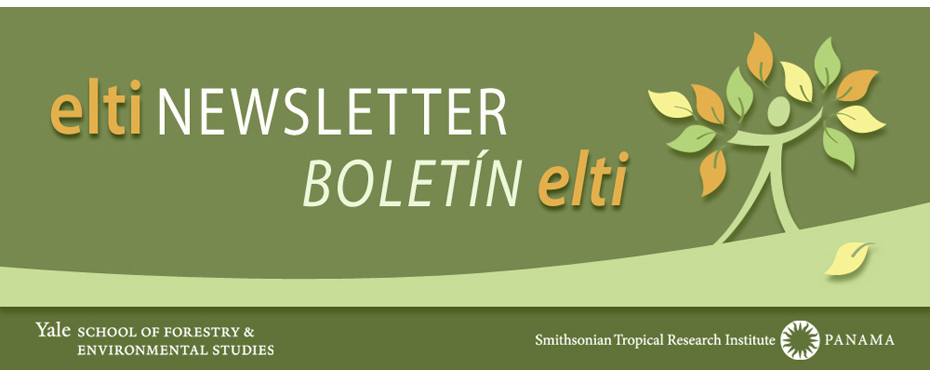conflicts. The prospect of funds flowing from the developed to the developing world in order to finance forest conservation and sustainable forest management, and avoid the release of the CO2 stored in these ecosystems, has caused perennial conflicts over land tenure and indigenous peoples rights, among others, to resurface with force.
If REDD+ it is to deliver on promised results, it will require clarity about the tenure of forests and carbon, and governance structures that protect the substantial efforts and investments that it will catalyze. In addition, mechanisms to ensure the adequate compensation of those who protect and manage the forests, as well as respect for their rights, culture, and traditional worldviews, must be instituted and enforced.
STRI’s Packard Project, ELTI and other partner organizations have hosted a series of workshops on REDD+ and conflict resolution techniques for indigenous leaders, government officials, NGO representatives, and members of farmers associations. These have led to the creation of an inter-cultural, inter-sectoral Consultative Council on Conflict Resolution and REDD+, a forum where the various groups work to identify sources of potential conflict that could result from REDD+ in Panama (e.g. land and carbon tenure, distribution of benefits, and social safeguards), and to establish conflict resolution strategies to address them. During the Council’s first meeting on June 22, an overview of REDD+ was presented, followed by discussions about the role and relevance of their organization for the development of this mechanism. The group also charted a path forward for the functioning of the Council. During their next meeting in the indigenous community of Ipeti-Embera, the members will observe a real land-tenure conflict, which illustrates the types of problems that may arise as REDD+ moves forward in Panama.
........................................................................................................................
Primera Reunión del Consejo de Resolución de Conflictos y REDD+ - junio 22
El mecanismo conocido como Reducción de Emisiones por Deforestación y Degradación Forestal (REDD+) ha generado optimismo entre aquéllos dedicados a la mitigación del cambio climático, la conservación forestal y el alivio de la pobreza rural. Pese a ésto, REDD+ también ha encendido acaloradas discusiones y conflictos. La posibilidad de un flujo de fondos desde los países desarrollados hacia los países en desarrollo para financiar la conservación forestal y el manejo sostenible de los bosques, y evitar la liberación de CO2 almacenado en estos ecosistemas, ha causado el resurgimiento del eterno conflicto sobre la tenencia de tierra y los derechos de los pueblos indígenas.
Para que REDD+ pueda cumplir con los resultados prometidos, requerirá claridad en cuanto a la tenencia de bosques y el carbono, y las estructuras de gobernanzana necesarias para proteger los esfuerzos y las grandes inversiones que va a catalizar. Además, deben ser establecidos y aplicados mecanismos para asegurar la compensación adecuada a quienes protegen y manejan el bosque, así como el respeto de sus derechos, cultura, y cosmovisiones tradicionales.
El Proyecto Packard del Instituto Smithsonian, ELTI, y otras organizaciones aliadas han ofrecido una serie de talleres sobre REDD+ y técnicas de resolución de conflictos a líderes indígenas, oficiales de gobierno, representantes de ONGs y miembros de asociaciones campesinas. De allí ha surgido la creación del Consejo Consultivo para la Resolución de Conflictos, un foro inter-cultural e inter-sectorial donde los grupos participantes trabajan para identificar potenciales fuentes de conflicto que puedan resultar de la aplicación de REDD+ en Panamá (ej: tenencia de tierra y carbono, distribución de beneficios y salvaguardas sociales), y para establecer estrategias para abordar estos conflictos. Durante la primera reunión el 22 de junio, se presentó una visión general de REDD+, seguido por discusiones sobre el papel y la relevancia del Consejo para el desarrollo del mecanismo. El grupo también trazó una hoja de ruta para el funcionamiento del Consejo. Para la próxima reunión en la comunidad indígena Ipeti-Embera, los participantes observarán un conflicto activo en torno a la tenencia de tierra, que ilustra los tipos de problemas que podrrían surgir con el avance de REDD+ en Panamá.
Para que REDD+ pueda cumplir con los resultados prometidos, requerirá claridad en cuanto a la tenencia de bosques y el carbono, y las estructuras de gobernanzana necesarias para proteger los esfuerzos y las grandes inversiones que va a catalizar. Además, deben ser establecidos y aplicados mecanismos para asegurar la compensación adecuada a quienes protegen y manejan el bosque, así como el respeto de sus derechos, cultura, y cosmovisiones tradicionales.

No comments:
Post a Comment